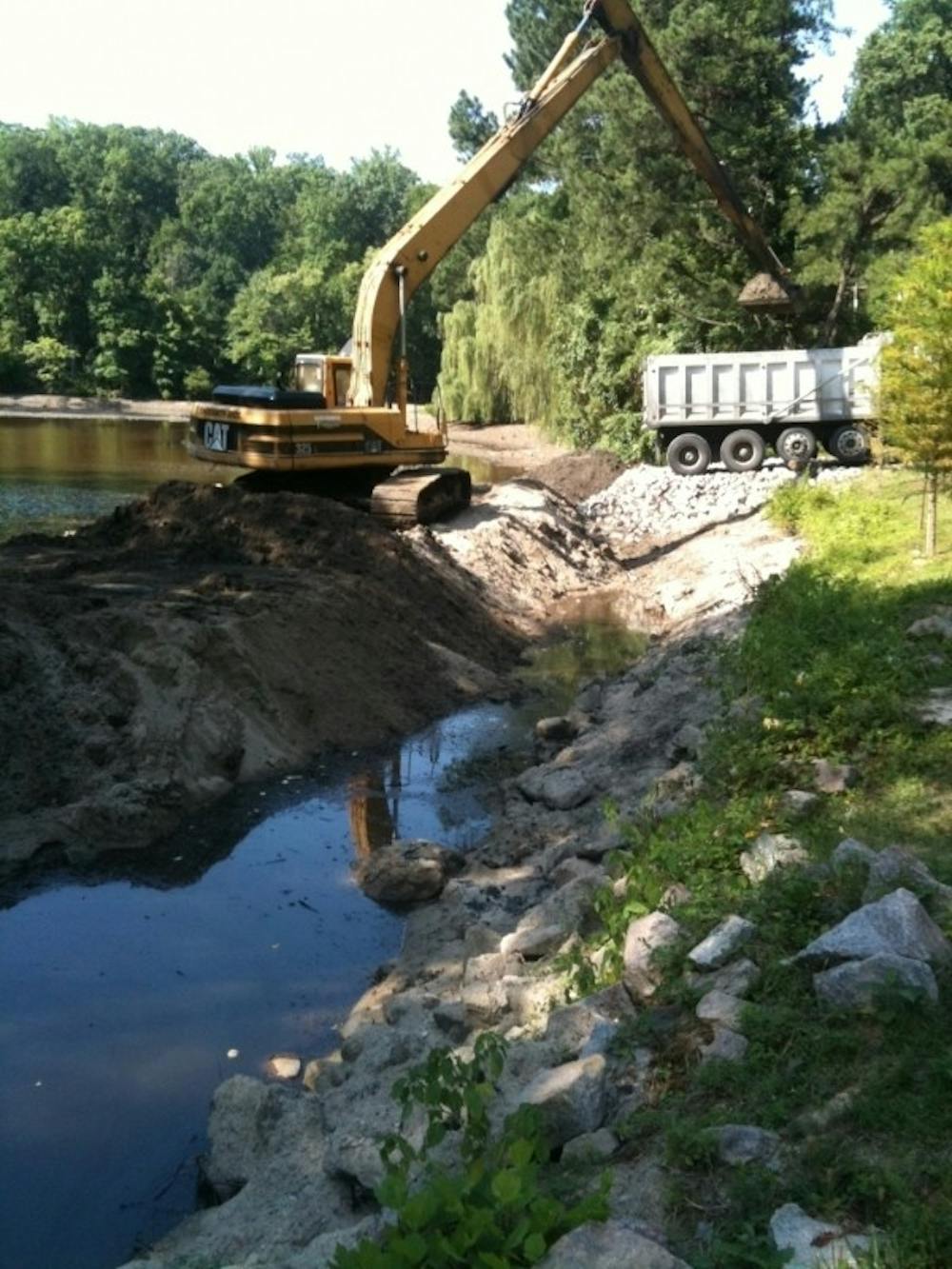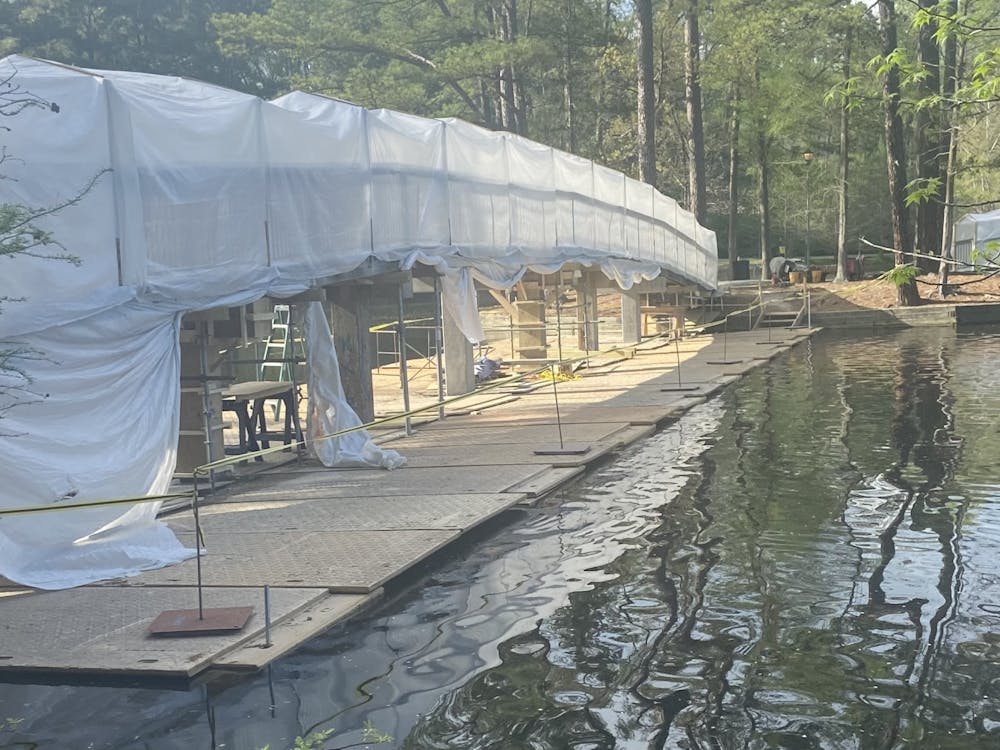Dangerously high levels of E. coli and coliform detected in Westhampton Lake have forced Delta Gamma and Theta Chi to postpone their joint philanthropic event, Richmond Regatta.
Chief David McCoy, associate vice president of public safety, reported the E. coli levels as being 1,600 MPN to 3,000 MPN and the coliform levels almost 20,000 MPN. The levels of E. coli and coliform that are considered safe are around 235 MPN to 250 MPN and 10,000 MPN, respectively. These levels were tested in August.
MPN stands for most probable number, which is the unit of measure that University Facilities uses for water testing. This specifically measures the concentration of a target microbe in a water sample, according to an FDA article by Robert Blodgett.
“[The readings] raised some concerns because I knew that there was a philanthropy event coming up,” McCoy said. “We are all in agreement that if these levels remain high, we’re going to have to come up with some sort of plan B.”
However, the levels were tested again on Sept. 26 after Steve Glass, horticulturist and landscape manager, arranged for another test. Kelly Dooley, chapter president of Delta Gamma, said the results showed that the levels in the lake had returned to normal.
“We’re thinking of pushing the event back a few weeks so that we can better prepare for it,” she said.
The Richmond Regatta is a kayak relay race across the lake that raises money for Delta Gamma and Theta Chi’s philanthropies, Service for Sight and United Service Organizations. This will be the second year that this event is being hosted.
“Safety is the main concern for me,” McCoy said. “Last year we didn’t have this issue to this extent. We’re hoping the spike is just an anomaly.”
Steve Glass said the lake water was tested three times a year.
“[The tests] are fairly extensive,” Glass said. “Not only do we test the water in the lake, but we also test the water in all streams leading to the lake, which are three.” He said there was a daily check for trash around the lake as well.
McCoy said the lake was free-flowing and consistently changing. “It is not a stagnant body. There’s all sorts of factors that come into play, which impact these numbers on a daily basis,” he said.
According to the Westhampton Lake Report by the University Lake Study Group, the “accumulation of silt, excessive fertilizers, algal blooms, bacterial contamination and overfishing of bass pose the greatest threats to the lake.” The report was created in response to degradation of the lake in 1988.
Enjoy what you're reading?
Signup for our newsletter
Glass said that in order to clean the lake, the water was lowered and drained to a level where it could be cleaned. There are typically 60 dump truck loads of sand, leaves and tree trunks removed near the gazebo from the lake during each cleaning. The lake is cleaned once a year.
McCoy said they had to be conscientious when scheduling events involving the lake. He has been coordinating plans with representatives from Delta Gamma and Theta Chi since recent reports about the levels of the lake have been released.
“We work close with student development in sharing [safety] concerns for any activities and events,” McCoy said. “We just don’t know sometimes.”
Contact Collegian Reporter Alyssa Gunville at alyssa.gunville@richmond.edu
Support independent student media
You can make a tax-deductible donation by clicking the button below, which takes you to our secure PayPal account. The page is set up to receive contributions in whatever amount you designate. We look forward to using the money we raise to further our mission of providing honest and accurate information to students, faculty, staff, alumni and others in the general public.
Donate Now



